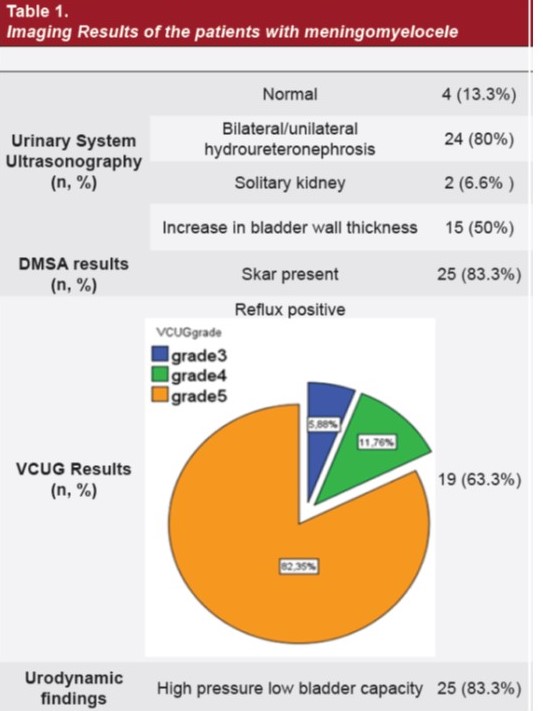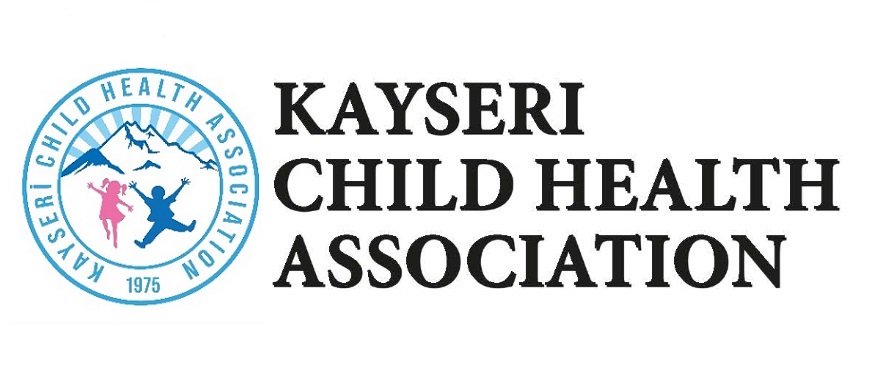Risk Factors for Renal Function Impairment in Children with Meningomyelocele; a Single Center Study
Keywords:
Meningomyelocele, chronic kidney disease, risk factorsAbstract
Introduction: Chronic kidney disease and its complications are among the most frequent cause of morbidity and mortality in patients with meningomyelocele.
Objective: In this study, we aimed to determine the risk factors leading to chronic kidney disease progression in these patients.
Material and Method: Fifty patients with meningomyelocele were analyzed retrospectively. Age, gender, follow-up period, serum creatinine, glomerular filtration rate, vesicoureteral reflux (VUR), initial urodynamic findings and initiation time of clean intermittent catheterization (CIC) were noted. The progression of Chronic kidney disease (CKD) was evaluated by DMSA renal scintigraphy, changes in serum creatinine (Screa), and glomerular filtration rate (GFR).
Results: 30 of the 50 patients were included in the study. VUR was detected in 63% of the patients, and scar was detected in 83% by renal scintigraphy. The median value of Screa was 0.5 mg/dl in admission, while the median Screa was 1.02 mg/dl (min-max: 0.27-5) at the last visit and the difference was statistically significant (p=0.001). A statistically significant was found between CKD progression and GFR in admission (p=0.001), CIC onset age (p=0.03), degree of VUR (p=0.046), presence of renal scar (p=0.002). It was shown that delay in admission (p=0.011; OR 1.36; CI 1.07-1.73) and low GFR in admission (p=0.036 OR 0.915 CI 0.842-0.994) were the most important risk factors.
Conclusion: In our study, it was shown that delay in neurogenic bladder treatment, delay in the initiation of CIC, and low GFR at admission were important risk factors for the progression of CKD in children with meningomyelocele. Therefore, we aimed to emphasize the importance of regular follow-up of these children in Pediatric Nephrology Clinics from the neonatal period.









